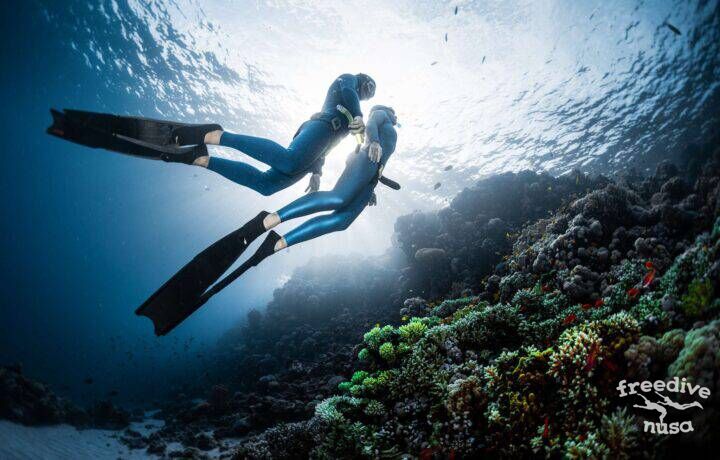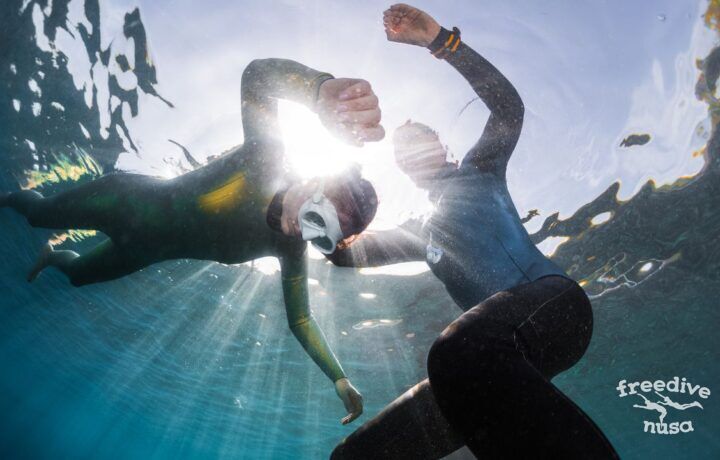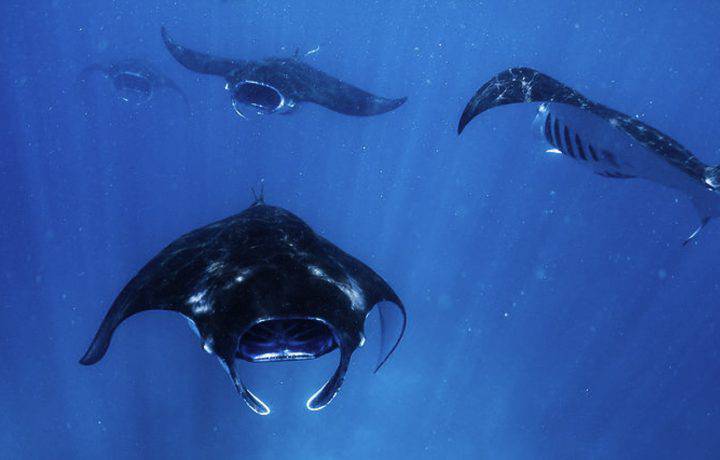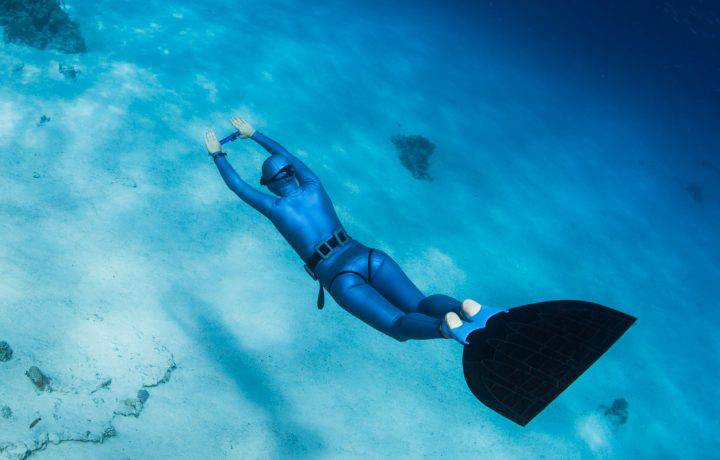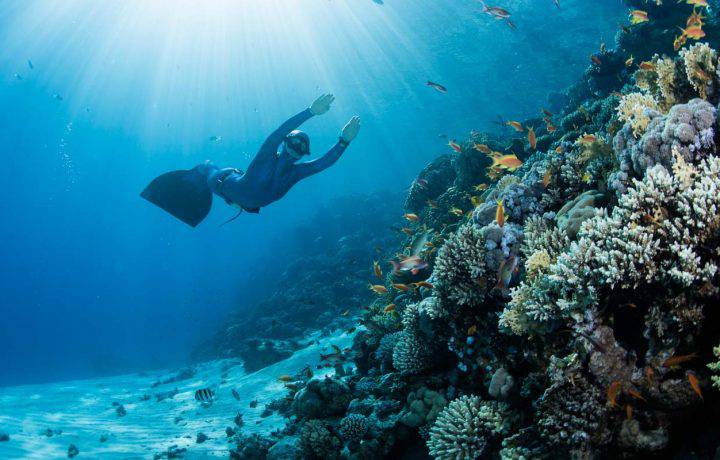The value and uses of freediving has evolved over time. Humans first started freediving to forage the ocean for food and valuable items; that tradition lives on today. For example, for the last 3000 years, Japanese female apnea divers known as the Ama collect seaweeds, pearls, and shellfish. Freediving continues to be practically beneficial to many cultures around the world.
When freediving became an official sport, the depth one could reach and time one could spend underwater became a way to test one’s power. Thanks to the freediving athletes of old, scientists and doctors collected valuable data about the effect freediving has on the body and answered the ultimate question: is freediving bad for your health? They discovered freediving is universally safe and natural for human beings, contradicting the previous belief it was extreme and dangerous. Freediving courses consolidate all of this collected wisdom — making early progress easily achievable in a few short days. Modern recreational freediving is a perfect hobby for travelers: it’s a new exciting experience that radically improves water confidence and demands little gear — and so its popularity has exploded worldwide. However, freediving isn’t just useful, fun, and beautifully simple; there are also many health benefits in freediving — especially for those practicing regularly.
Improve Your Respiratory Health
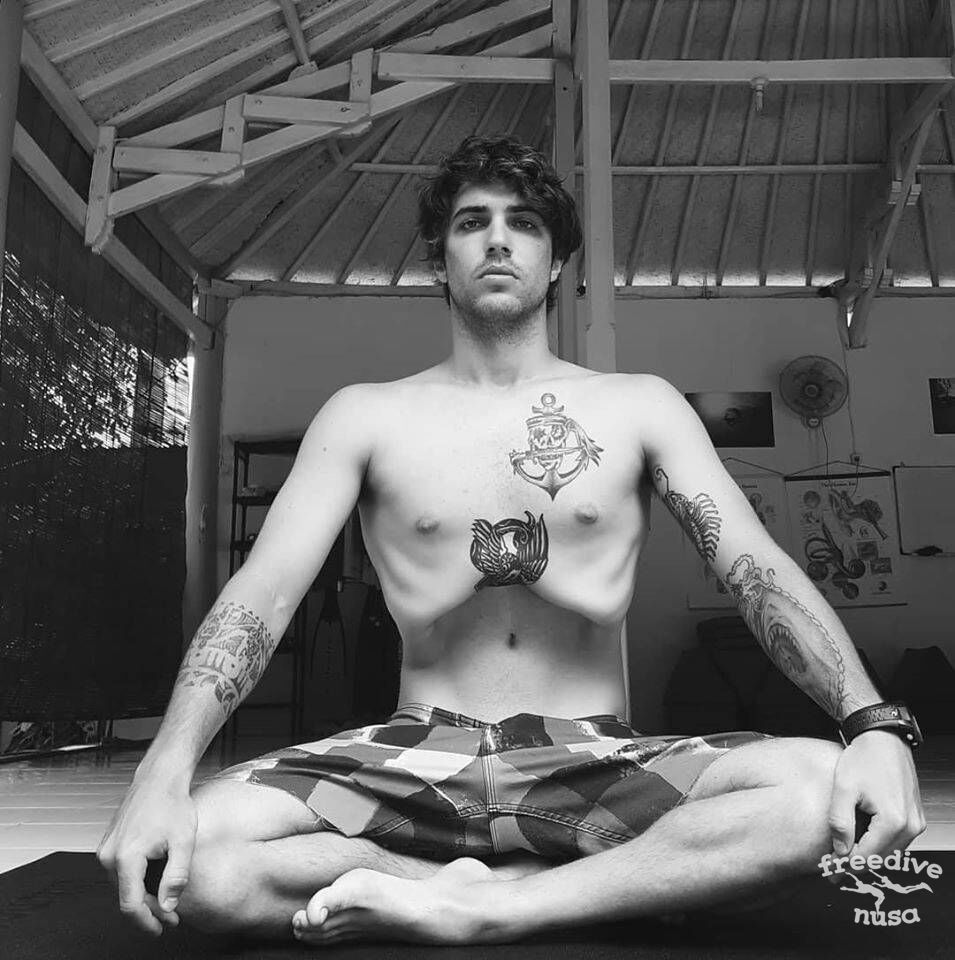
Freediving improves respiratory efficiency. During freediving training, you learn how how to fill your lungs until to their maximum volume. This is a skill unfamiliar to most people unless they are advanced yogis. With the help of constant training and specialized stretching exercises, freedivers increase their lung capacity and elasticity while developing their respiratory muscles. The lungs start to work better. The whole body benefits from more efficient breathing. Dyspnea is reduced and inflammation in the body is reduced.
Additionally, the elasticity of blood vessels (arteries and arterioles) increases, positively affecting the heart and lungs saturation. More flexible vessels hold more blood and carry more oxygen to the vital organs of a person.
Anecdotally, there are many stories of people curing or managing their asthma and inflammatory arthritis through the respiratory benefits of freediving and breathwork.
Improve Your Oxygen Consumption Efficiency
How long we can stay underwater is totally determined by how efficiently we consume oxygen. Oxygen consumption efficiency is measured by the ratio of oxygen consumed to body weight. This ratio depends on the concentration of hemoglobin in the blood. Hemoglobin is the protein in red blood cells that transports oxygen from the lungs to the rest of the body. Intense cardio training helps to increase hemoglobin and red blood cell count; with most of the research in this area coming from runners. However, there is good news for those of us who dislike running or intense cardio: freediving does the same!
Freediving causes a series of rapid and complex changes in the body called the mammalian dive reflex. One of these changes is known as the spleen effect, wherein the spleen releases rapidly release more red blood cells into the bloodstream, quickly increasing the oxygen efficiency. During a deep dive, the freediver’s blood rapidly becomes similar to that of alpine residents. As a result, the brain and body work better and better with lower and lower amounts of oxygen.
Improve Your Joint Health
While many impact sports put a strain on joints, water-based sports can reduce intra-articular pressure, relieve swelling, and even increase the range of mobility. In terrestrial sports, our joints typically become the point of shock absorption, whereas in water-sports like freediving, hydrostatic pressure underwater is distributed evenly over the entire surface of the body and force if distributed more evenly. That is why people with weak joints are often prescribed swimming and water gymnastics.
During freediving, you learn to distribute tension even more efficiently than swimming — learning to control your body under the water, distribute the impact load on to the entire surface of the arms and legs, and move not just smoothly, but efficiently. Freediving places a greater emphasis on bodily relation because excess tension leads to an increase in oxygen consumption.
Improve Your Muscle Tone
Freediving is constant movement. Even during deep dives that include freefall (a time when the freediver is letting gravity do the work), the muscles work intensively. On the way down, the freedivers kick hard to overcome positive buoyancy. On the way back to the surface, they must kick strong and steady to fight the negative buoyancy. It is a fantastic resistance training for the muscles! You will especially feel the muscles if you practice diving without fins or Constant Weight No Fins (CNF) diving.
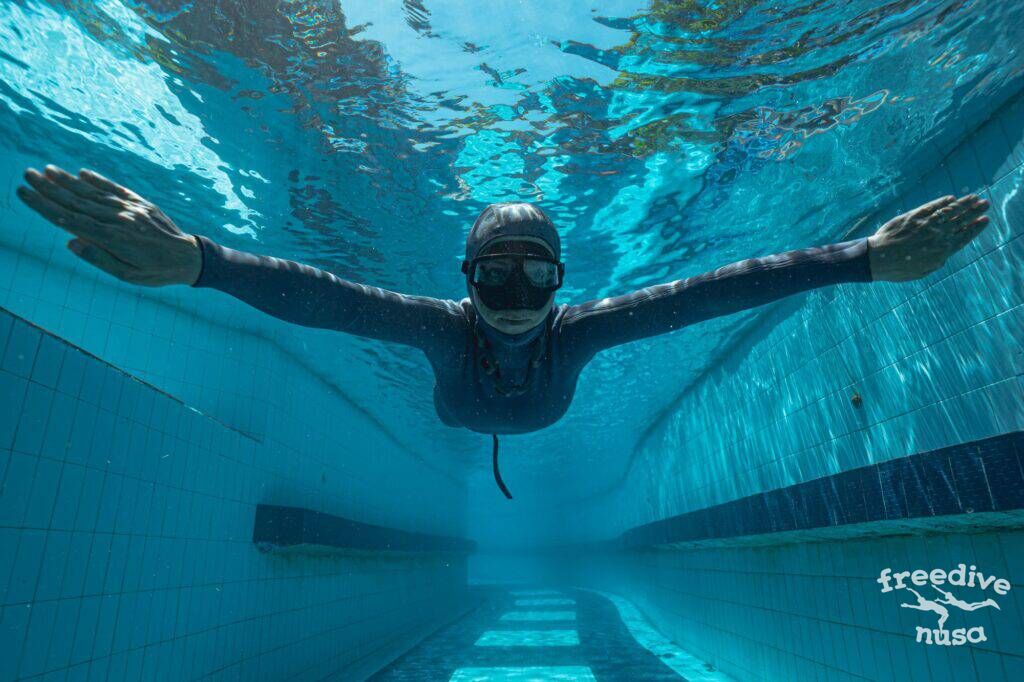
Freedivers train their muscles aerobically for the first part of the dive and anaerobically as the dive goes on. In hypoxic conditions, muscles tire quickly, and with time training effectiveness increases. The muscles become more efficient at oxygen consumption and there is an increased amount of mitochondria (the energy powerhouses in our cells) in our body. Consequently, athletic performance and endurance are amplified.
Athletes in a variety of disciplines use hypoxic training. They put on special masks or train in high altitude conditions in the mountains. In freediving, you don’t need to do something extra.
Because of the many benefits to the muscle and to oxygen consumption, freediving is become incredibly important as a cross-training device for athletes across many sports.
Improve Your Flexibility and Mobility
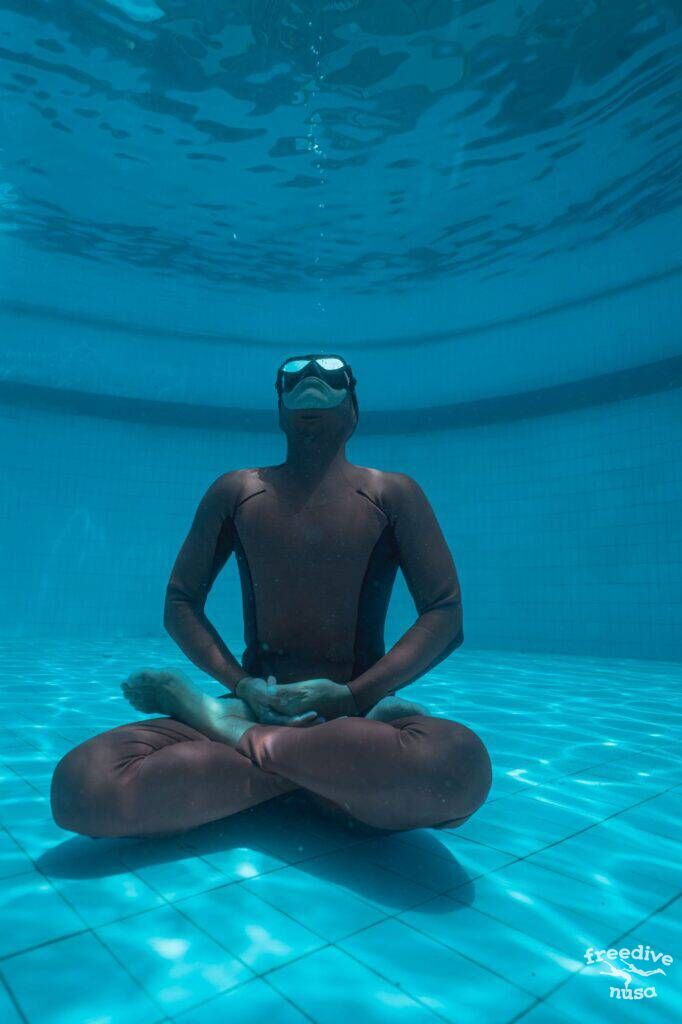
If you want to dive like the fish, you must be flexible like one! Freedivers focus on developing their flexibility — especially the respiratory muscles. Deep diving requires good elasticity of the chest and diaphragm — this enables divers to expand their lung capacity and to protect their lungs from the pressure.
Our freediving courses, teach specialized chest stretching exercises and full-body stretching classes before each water session. Flexibility allows you to increase the amplitude of movements, make them more efficient and smooth. To stay in shape, many freedivers regularly work on stretching on land and practice yoga.
Reduce Your Stress
Relaxation is one of the most important parts of freediving. To dive happily and safely, you need to be completely relaxed before, during, and after the dive — this is the single most important factor in conserving oxygen and elongating your time spent underwater. Relaxation is also very important in depth because avoiding tension is the best way to protect the body from injuries associated with pressure changes.
During freediving courses, there is always lots of theory and practice dedicated to meditation techniques, relaxation exercises, and avoiding everyday stress during training. Due to the conscious development of these skills, freediving athletes have lower rates of background anxiety, stress symptoms, and negative affectivity compared to ordinary people.
Gain a More Conscientious lifestyle
One of the main goals of freediving training is to learn to listen to your body and to aware, understand, and control it. Together with the development of these skills appear confidence in oneself and one’s actions, which is very important for good relaxation, concentration, and control of the emotional state. A confident and calm freediver not only increases his own performance but also becomes an excellent partner and a reliable person to ensure safety.
One of the less obvious health benefits of freediving is a newly found awareness and understanding of one’s body. Freediving becomes a gateway to a healthier lifestyle as freedivers begin to pay more attention to training and take more care of their general condition, daily routine, and nutrition. Very dedicated freedivers monitor their diet carefully and even keep a special training and nutrition diary, which positively affects their overall health in the future and brings better diving results.
Sign up for our Freediving sessions for all levels.

